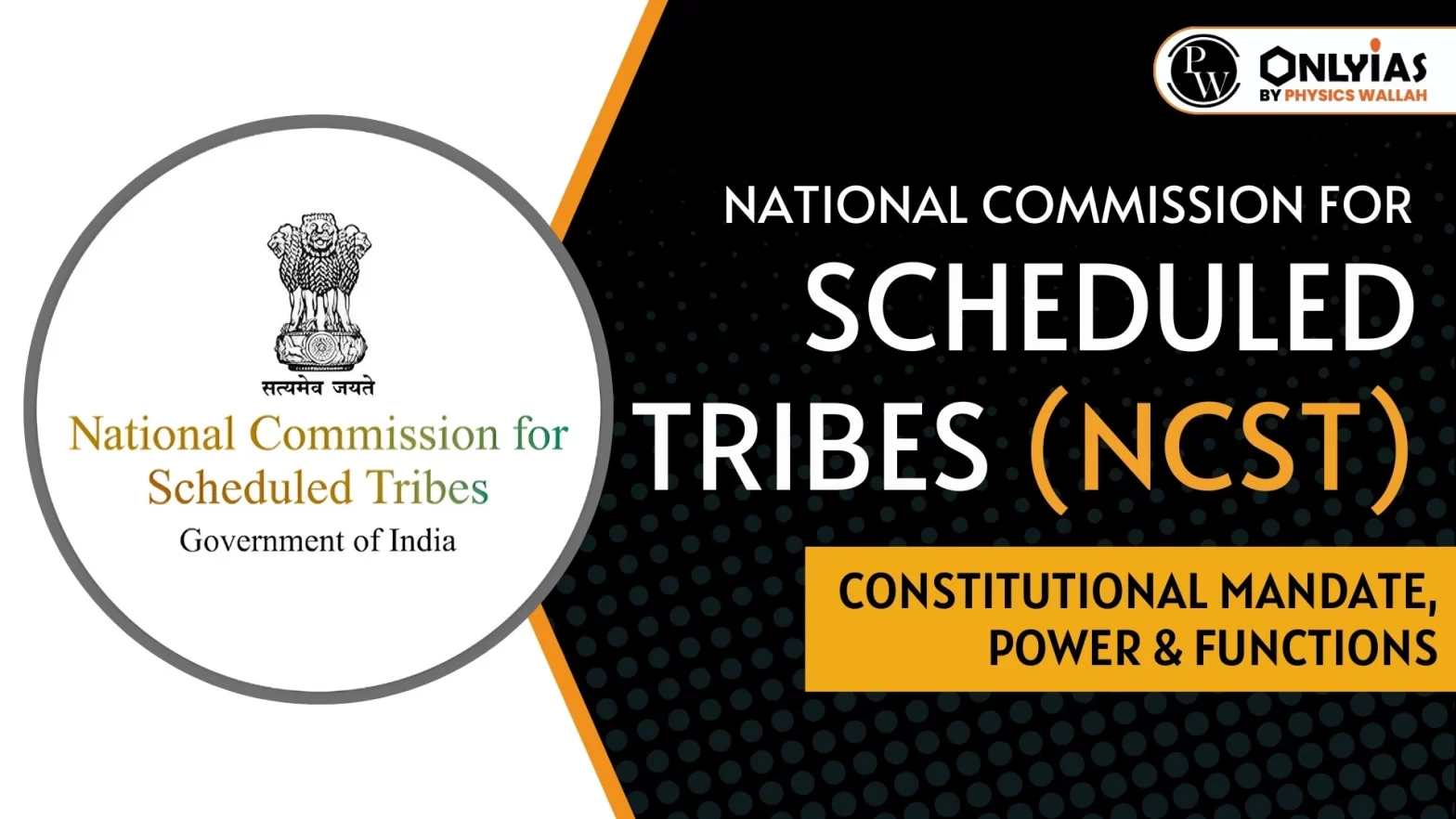National Commission for Scheduled Tribes (NCST) plays a crucial part in shaping tribal welfare policies and ensuring enforcement of legal protections for Scheduled Tribes in India. Explore its roles, powers, and impact on tribal communities.

The Constitutional Role of the National Commission for Scheduled Tribes (NCST): The National Commission for Scheduled Tribes (NCST) is a constitutional body set up under Article 338A of the Indian constitution. It was carved out of the National Commission for Scheduled Castes and Scheduled Tribes in 2004 to provide focused attention to tribal issues. The commission is responsible for monitoring and evaluating the implementation of constitutional safeguards, welfare programs, and policies related to Scheduled Tribes. It also investigates complaints, provides recommendations to the government, and ensures the social, educational, and economic development of ST communities across the country.
Also Read: National Commission for Backward Classes (NCBC)
Also Read: National Commission for Scheduled Castes (NCSC)
The National Commission for Scheduled Tribes (NCST) celebrated its 22nd Foundation Day on February 19, 2025. Established under Article 338A of the Indian Constitution, the commission plays a crucial role in safeguarding the rights and welfare of Scheduled Tribes across the country. Over the years, the NCST has worked extensively on policy recommendations, grievance redressal, and monitoring the implementation of constitutional safeguards for tribal communities. The celebration highlighted the commission’s efforts in promoting tribal development, empowerment, and inclusivity in national governance. Various dignitaries and stakeholders participated in the event, discussing the progress and future roadmap for tribal welfare in India.
The National Commission for Scheduled Tribes (NCST) is a constitutional body set up under Article 338A of the Indian constitution, which aims to provide for welfare and development of STs.
National Commission for Scheduled Tribes (NCST) came into existence after National Commission for Scheduled Castes and Scheduled Tribes was bifurcated under 89th Constitutional Amendment Act of 2003 to form the National Commission for SC (Article 338) and National Commission for ST (Article 338A).
The President of India appoints the members of the National Commission for Scheduled Tribes (NCST) by warrant under his hand and seal.
The commission, which consists of a Chairperson, a Vice-Chairperson, and 3 other members, are appointed by the President by warrant under his hand and seal. At least one member should be a woman.
NCST has the responsibility to investigate & monitor matters relating to safeguards provided for STs in both centre and state level. The Commission presents an annual report to the President regarding the working of safeguards for STs.
<div class="new-fform">
</div>